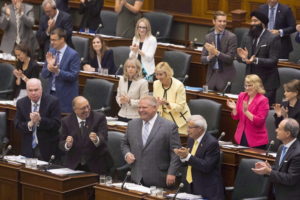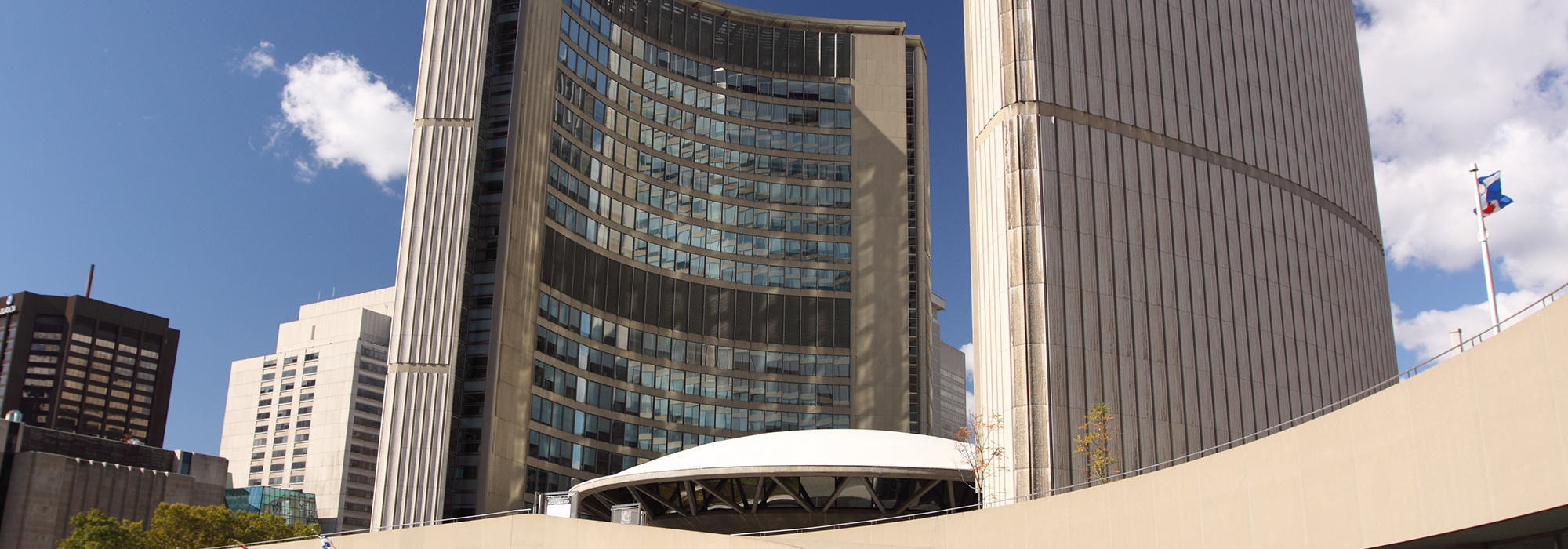
Governments have always taken advantage of citizens’ inattentiveness to democratic “process issues.”
Democracy needs protecting more than ever, and a careful process is core to ensuring that our electoral and democratic norms are maintained. When a government brings in legislation like Ontario’s Bill 5 that alters the rules of democratic processes or bodies — in this case, some regional and municipal elections and the size of Toronto’s city council — that action should be held to a higher democratic standard and guided by a particularly robust, inclusive and transparent public process. This is because politicians are changing the rules of the game that they themselves are playing. It’s up to the public to supervise these elected public leaders. Therefore, when proposing changes like those in Bill 5 (now the Better Local Government Act, 2018), governments should create even more opportunities for public participation, consultation and scrutiny.
Though Premier Doug Ford’s government was democratically elected in June under provincial rules, voters did not have the opportunity during the very recent election campaign to weigh the idea of cutting Toronto’s city council or cancelling the election of regional chairs. These ideas did not form part of any party platform. There was no public consultation outside of the election.
How does this process compare with those followed by other governments that have taken on similar issues recently?
When Toronto’s city council reviewed its ward boundaries starting in 2014, the multi-stage public engagement included 24 public meetings throughout the city, more than 100 in-person meetings with stakeholders, a social media campaign with more than 400 posts, hundreds of posters and advertisements, and a multiple surveys of Torontonians — all to help make the decision to change the number of wards from 44 to 47.
The previous Ontario government also tweaked its riding boundaries last year, adding two new ridings in the Far North. Before doing so, it created an independent commission of experts to examine the issue. Within a three-month timeframe, it hosted 21 public meetings in affected communities, along with online engagement of northerners.
At the federal level, when the Justin Trudeau Liberals sought to change the electoral system, they first ran an election campaign on that promise and subsequently commissioned an online engagement project that collected more than 300,000 responses.
To be clear, none of these examples are best practices or gold standards. They just set the floor for the direct public engagement that must come before a government changes the terms of an election.
Provincial and federal governments are using time allocation more often — but almost never with quite so heavy a hand. What’s much worse in this case is that the government skipped the committee stage altogether.
Alongside public engagement, governments should make special efforts to build consensus with political adversaries in pursuing this kind of change. But Bill 5 was hustled through the legislature in mid-August in defiance of even modest standards of good parliamentary behaviour. The government invoked “time allocation,” giving itself the power to end debate. Provincial and federal governments are using time allocation more often — but almost never with quite so heavy a hand. What’s much worse in this case is that the government skipped the committee stage altogether.
It’s hard to get Ontarians fired up about legislative committees at any time, let alone in the heat of summer. Committees are not sexy, but they serve a critical democratic purpose by opening the doors of the legislature to the public. Committees are where experts and citizens can inform legislators, and where members from all parties can carefully study and discuss the details of a proposed new law.
Skipping the committee stage completely is serious — and nearly unprecedented.
Prime Minister Stephen Harper’s government was criticized for its frequent use of time allocation to end debates. But every single bill it passed with time allocation saw days of debate in committees.
This is the standard practice in Parliament regardless of the government, and important matters receive proportionally more attention. For example, the Trudeau Liberals formed a special parliamentary committee on electoral reform that held 57 meetings in 18 cities, hearing from nearly 200 witnesses and more than 500 citizens at open mic sessions, and from more than 20,000 Canadians through online consultation. The committee also invited MPs to have town halls with their own constituents and report the results. More than 170 MPs did so, hosting an estimated 12,000 citizens in total. (The Liberals abandoned electoral reform, in part, because the political opposition was united in arguing that significantly more opportunities for public participation were necessary.)
Committees are no less important at the Ontario legislature. According to unpublished research by Carleton University’s Paul EJ Thomas, in the legislative sessions between the 2014 and 2018 provincial elections, fully 85 percent of government bills went to the committee stage. When the Liberal government skipped committees with one contentious bill earlier this year in an effort to get it passed before the election, it was ferociously — and rightly — condemned by members who are now senior ministers in the new Progressive Conservative government.
Thomas’s research finds that a government bill in Ontario got seven days of debate, on average, over the last 20 years. That’s an average that includes bills that were passed in a single day and were largely inconsequential.

Bills that are democratically significant get more debate. For example, the Mike Harris government debated the Toronto amalgamation bill in 1997 for 29 days, including 15 days in a standing committee and another 10 days with the entire membership of the legislature sitting together as a committee.
Bill 5 received four days of debate. And zero days in committee.
These proceedings failed to meet the criteria for democratic legitimacy of any important bill, let alone one that cancels elections and transforms political representation in the country’s largest city.
The new Ontario government has a right to champion changes to how our local democracy works, and it will have plenty of opportunities to do so over the next four years. But this action threatens to set a dangerous precedent for democratic ethics in this province. Bill 5 was not business as usual, but it risks becoming so for Ontario’s current and future governments if citizens fail to act as public defenders of democratic process.
Photo: Shutterstock/By gary yim
Do you have something to say about the article you just read? Be part of the Policy Options discussion, and send in your own submission. Here is a link on how to do it. | Souhaitez-vous réagir à cet article ? Joignez-vous aux débats d’Options politiques et soumettez-nous votre texte en suivant ces directives.








